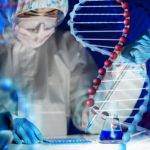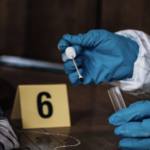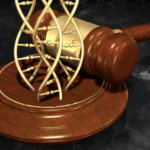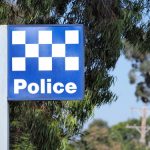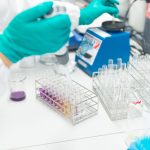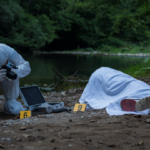Dodgy DNA Testing Casts Doubt on Thousands of Criminal Convictions
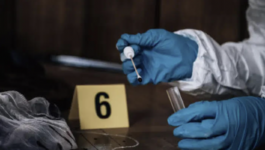
A scathing report handed down by a six-moth Queensland Commission of Inquiry into the state’s DNA testing methods, systems and processes has put thousands of convictions at risk of being overturned on appeal.
Convicted murderer Andrew Cobby is the first who has announced an appeal in relation to the DNA practices at Queensland Health’s Forensic and Scientific Services (FSS) lab.
He was found guilty in 2021 of murdering his estranged wife Gaylene Cobby, known as Kym, by bashing her to death with a hammer and strangling her.
The hammer – a key piece of evidence will now undergo further testing as Mr Cobby awaits the decision regarding his bid to appeal.
Findings of DNA Inquiry
The Commission of Inquiry into DNA Testing in Queensland handed down its final report in December 2022.
Its primary finding was that “methods, systems and processes used at the forensic DNA laboratory do not, in many ways, measure up to best practice. The laboratory has, for some time, focused on throughput and quick reporting of results to the detriment of high-quality science.”
Specifically, the inquiry found the three senior scientists in charge of the lab were responsible for “the conception and drafting” of a scientific paper which they used to convince police to agree to an unusually high DNA testing threshold in 2018.
This meant that the lab did not test DNA samples below a certain threshold and, instead, reported these samples to the police and courts as being ‘DNA insufficient’. The has meat that key evidence has been missed in murder and sexual assault cases.
It’s now understood that more than 600 of the 1260 cases where witness statements included a reference to DNA samples which were declared as having ‘DNA insufficient for further processing’ or ‘No DNA detected’ have now had to have statements reissued.
Although in recent days, Queensland Health has admitted that it is currently only half-way through the caseload – therefore, the numbers could very well increase.
Significant backlog – the extent of the fallout is unknown
In addition, there are also 10,000 DNA samples in a backlog – this is the “business as usual” work pipeline – without even counting historical cases now in need of re-testing.
The lab is now under new management – two of the scientists left shortly after the royal commission’s final report, and the third is currently suspended without pay.
But new employees are charged with retrospectively reviewing thousands of sexual assault cases dating back to 2008 “to determine which should be subject to retesting or re-analysis”.
Australian Federal Police have been called in to help clear the backlog.
Wide-reaching impact on the QLD justice system
However, the failures of the system obviously have implications beyond the backlog – there could be hundreds of innocent people behind bars, wrongly convicted of crimes they did not commit – a serious miscarriage of justice.
The Queensland Government is considering a range of issues for reform, including making the lab independent, and moving it from the Department of Health, making it accountable instead to the Department of Justice.
It has also recognised the need for better equipment and proper investment in people, systems and processes, to ensure the lab works efficiently, effectively and thoroughly.
Justice delayed
The backlog, and the older cases will take many months to sort through – there will be no quick fix, which will mean that some people will have their trials delayed, others will remain behind bars, serving sentences they needn’t be, until they can have their appeals heard. In amongst all this are the victims, who still wait for justice.
Many criminal lawyers attest to the fact that access to independent DNA analysis and advice is fundamentally important to ensure that a defendant receives a fair trial. This is especially true in in cases where DNA or a forensic analysis of a crime scene may provide material evidence that would assist in disproving the prosecution case.
This is because every person’s DNA is unique and it is considered to be more reliable than other forms of forensic testing, however it is not completely infallible – as is plainly obvious by the QLD FSS laboratory bungle. Samples have also been wrongly labelled, or contaminated in the lab, or even mis-matched with a person’s profile. People have been wrongly convicted based on DNA samples.
And jury is always encouraged to consider the DNA evidence in context of all evidence presented at a trial – even when it seems compelling, even irrefutable, it is only one piece of the overall evidence.
DNA Testing in New South Wales
In New South Wales, obtaining DNA samples is primarily governed by the Crimes (Forensic Procedures) Act 2000.
Under this Act, DNA samples can be taken from a suspect with their informed consent. A suspect is defined in section 3(1) as:
(a) a person whom a police officer suspects on reasonable grounds has committed an offence;
(b) a person charged with an offence;
(c) a person who has been summoned to appear before a court in relation to an offence alleged to have been committed by the person; or
(d) a person who has been served with an attendance notice issued under section 100AB of the Justices Act 1902 in relation to an offence.
If a person refuses to provide a sample of DNA, police can apply for a court order.
Section 8 of the Act states that a forensic procedure cannot be carried out on a child under the age of ten years, except under the following circumstances:
(a) if a parent or guardian of the child gives informed consent to the carrying out of the forensic procedure.
(b) if the forensic procedure is carried out on the child pursuant to a Magistrate’s (court) order.
In Australia, all DNA is stored on a nation-wide database, which means all Australian state and territory databases are connected and DNA profiles can be shared.
If, in the eventuality a person is convicted of a crime, there DNA can be stored on the DNA database indefinitely. If a conviction is quashed, or a person is found not guilty, then their DNA is supposed to be destroyed.


